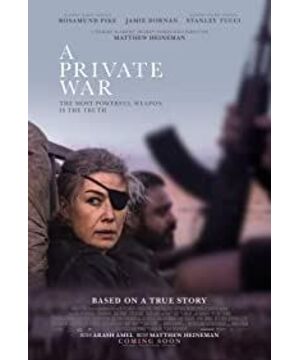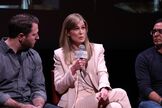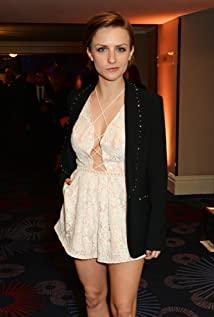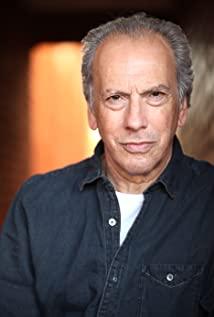In 1986, after the United States bombed Libya (Operation El Dorado canyon Operation Golden Canyon), Marie interviewed Gaddafi. In the interview, Gaddafi made it clear that as long as Reagan is in office, he will not make peace with the United States, because "Reagan is a madman, a stupid man. He is Israel's running dog." (He is mad. He is foolish. He is an Israeli dog.)
Marie specializes in the Middle East. She has reported on Chechnya, Kosovo, Sierra Leone, Zimbabwe, Sri Lanka, East Timor, etc.
In 1999, in East Timor, 1,500 women and children were rescued because of her. This year, she was awarded an award by the International Women's Fund in recognition of her courage in reporting on Chechnya and Kosovo.
She has produced many documentaries, such as Arafat: Behind the Myth, etc.
In 2001, she rushed to Sri Lanka to report on the civil war and lost her sight in her left eye due to a bombing. Before the bombing, even though she opened her arms and shouted "I am a reporter!", the soldiers still did not show mercy.
In the case of impaired vision, before the deadline, she wrote a 3,000-word press release.
Marie is a witness and reporter of the civil war in Sri Lanka. After she was injured, the Sri Lankan government expressed that they are willing to let foreign journalists go to the rebel areas: "Journalists can report, and we will not stop them. But they must be clear that they will be in danger of life."
In 2011, during the Arab Spring, she was invited again to interview Gaddafi. In the interview, "humanity" and "humanity" are her focus. She said: "My job is to witness everything. I am not interested in bombing and artillery."
In 2012, Marie was stationed in Homs, Libya, to broadcast the final report of her life. She said that the bombing relentlessly killed civilians, which was the worst war she had ever experienced.
After the autopsy, the Syrian government claimed that she died of an "improvised explosive device full of nails." Also sacrificed with her was Remi ochlik, a French photographer. But Paul, the photographer who had been following Marie, survived. He refuted the Syrian government's remarks, saying that "we were attacked by artillery shells."
On the night of Marie and Remi's sacrifice, the people of Homs mourned.
In 2016, Marie’s family sued the Syrian government over Marie’s sacrifice, saying they had evidence that “the Syrian government instigated the assassination of Marie”.
In 2018, a movie about Marie's life, A private war was released. This film is adapted from the article "Marie's private war".
Awards:
2000 – Journalist of the Year, Foreign Press Association
2000 – Courage in Journalism, International Women's Media Foundation
2001 – Foreign Reporter of the Year, British Press Awards
2009 – Foreign Reporter of the Year, British Press Awards
2012 – Anna Politkovskaya Award, Reach All Women in War (RAW in WAR)
2012 – Foreign Reporter of the Year, British Press Awards
other:
She was in Sri Lanka, trekking 30 miles with soldiers through the tropical jungle.
She has severe PTSD and was admitted to the hospital for treatment
She only cares about the civilians in the war. She said: "That is a voice drowned in history. I have a strong sense of moral responsibility towards them. Ignoring them is the act of cowards. If reporters have a chance to save their lives, then reporters must do that." ("These are people who have no voice," she said. "I feel I have a moral responsibility towards them, that it would be cowardly to ignore them. If journalists have a chance to save their lives, they should do so.")
She is of Irish descent and graduated from Yale.
The above information comes from:
https://en.wikipedia.org/wiki/Marie_Colvin
https://www.theguardian.com/media/2012/feb/22/marie-colvin
View more about A Private War reviews











